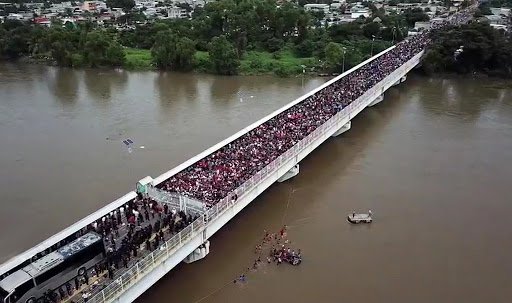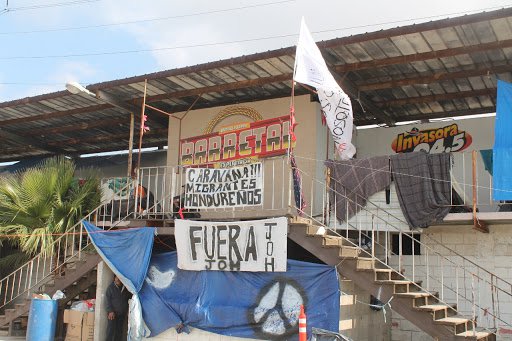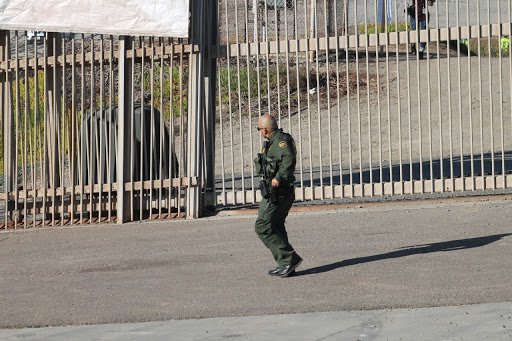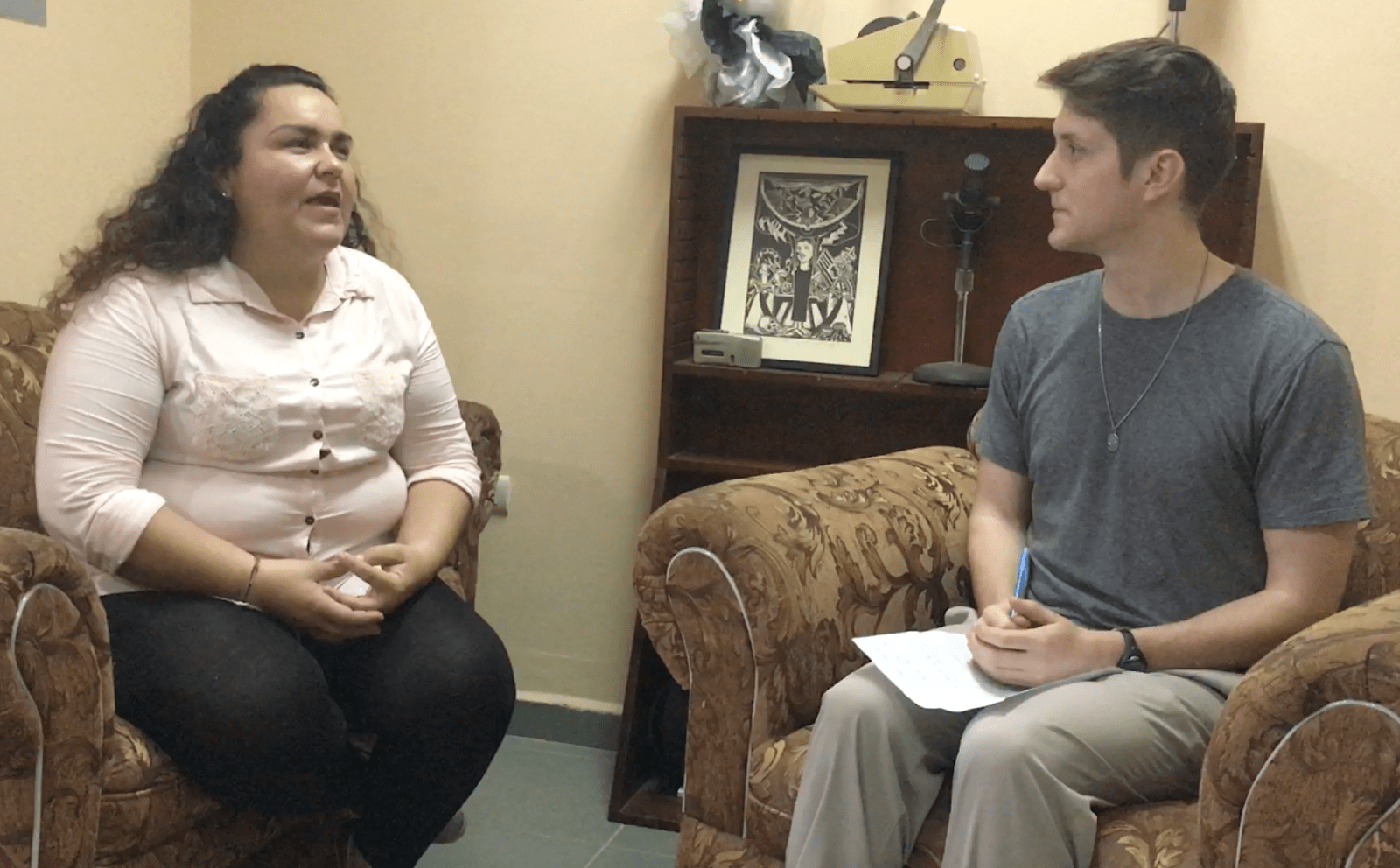About 15,000 more Hondurans are preparing to leave San Pedro Sula in a migrant caravan on January 15, 2019. Like others before them, they will journey through Guatemala and Mexico to the US border. I recently sat down to discuss the phenomenon with Iolany Pérez, the Director of Communications at Radio Progreso, the Jesuits’ social justice and communications research team in Honduras.
David Inczauskis, SJ: Let’s start with the basics. What are the immigrant caravans and how did they form?
Iolany Pérez: Concretely, in Honduras on October 13, 2018, a group of approximately 500 people gathered in San Pedro Sula, an urban center, at a bus terminal. They convoked a meeting, saying that they must leave on account of unemployment, violence, insecurity, and, above all, extortion. This phenomenon, this Honduran reality has exiled this group of Hondurans that left and passed through Guatemala, Mexico, and now find themselves in Tijuana.
I think it’s important, David, to mention that historically Hondurans have migrated to the US. What’s the difference now? That the people are doing it in avalanche style. Why an avalanche? Because it’s a way to protect their lives because it’s a dangerous route and to go alone means being exposed to extorsions, to mistreatment by gangs and the police. So the people said, “What’s the best way to protect ourselves? To go as an avalanche.”

DI: Why did the caravans arise at this historical moment? What is happening now to cause them to form?
IP: I think we can answer this question with some figures. In Honduras, seven of every ten people live in poverty. Of these seven, three live in misery–people who are living off less than a dollar a day, which in Honduras would be about 24 lempiras. This serious problem with poverty is related to inequality. Forbes magazine claims that in Honduras about 200 families control 80% of the wealth. These families literally live in great abundance at the expense of the impoverished majorities. The unemployment rate in Honduras is very high. The rate of precarious employment is also high–those people who go out to sell water, who have to sell whatever they can to survive. Such is our daily reality. There is a block of inequality and poverty in this country.
The other major cause of the caravans has to do with violence and insecurity. It’s common knowledge that San Pedro Sula is one of the most violent cities in Latin America. Honduras occupies the highest places of rates of violence. Though the Honduran authorities say that it has decreased, the fact is that for every 1000 inhabitants, 48 to 50 are murdered. It’s an alarming statistic for a country of only 9 million citizens.
To all of this we can add–and this is the historical reality of this country–what can we add? Honduras had a coup in 2009. This violation of institutionality and the rule of law was further consolidated with the electoral fraud of November 2017, which continues to maintain a character like Juan Orland Hernández in power. He’s an illegal and illegitimate president according to the Constitution of the Republic. But, still, this isn’t the only bad thing. The president is tied to serious acts of corruption, and this generates a weakness in the government and puts the people at risk. He’s a president with ties to drug trafficking. His brother was recently handed over to the US to be tried for drug crimes in a New York court.
So we have an illegal regime that is being consolidated and has gathered a group of people who live off public funds. It’s a group of people that through a private/public alliance do big business with the state. The state weakens the public sector and privileges the private sector, which extorts the citizenry. It’s a situation of historical violence and insecurity. What’s the new element? This government is doing everything illegally, increasing instability. People are becoming aware that they live in poverty, that they are unsafe–they can kill you at any moment–and the government will not back you up. What is the only way out? To flee. I think that the caravan can be interpreted as an act of survival for people who have no opportunities here.

DI: What can you say about the US government’s response to the caravans?
IP: I have to say, David, that Honduras is just a piece of all of this. The US has continued its campaign to criminalize migrants. We’ve seen in each one of the tweets (and it seems that the communications policy of Donald Trump is through tweets, which are in vogue) what he and his administration think, not through the Public Relations Office but through tweets. Anyways, in Twitter, he has labeled the migrants as gangsters and drug dealers. He is continuing to fortify his zero-tolerance policy on the immigration issue even though the US does not want to go in this direction (and I say so because many US people have been in solidarity with the Northern Triangle and Honduras). So the US policy has been to keep our people poor and unsafe and to keep these immigrants in Tijuana. It’s been a response of militarization of the border, of continuing with its plans to build more walls, of using our government for its objectives, seeing Honduras and the entire region as a key piece of their foreign policy in Latin America. It doesn’t matter that people are dying in their country. It doesn’t matter that they are leaving because the US privileges nepotism and supports illegal regimes. The US has detained the caravan by force just as it detains people domestically.

Radio Progreso will continue to cover the migrant caravans. You can access its recent publications on the migrants in Tijuana here.


